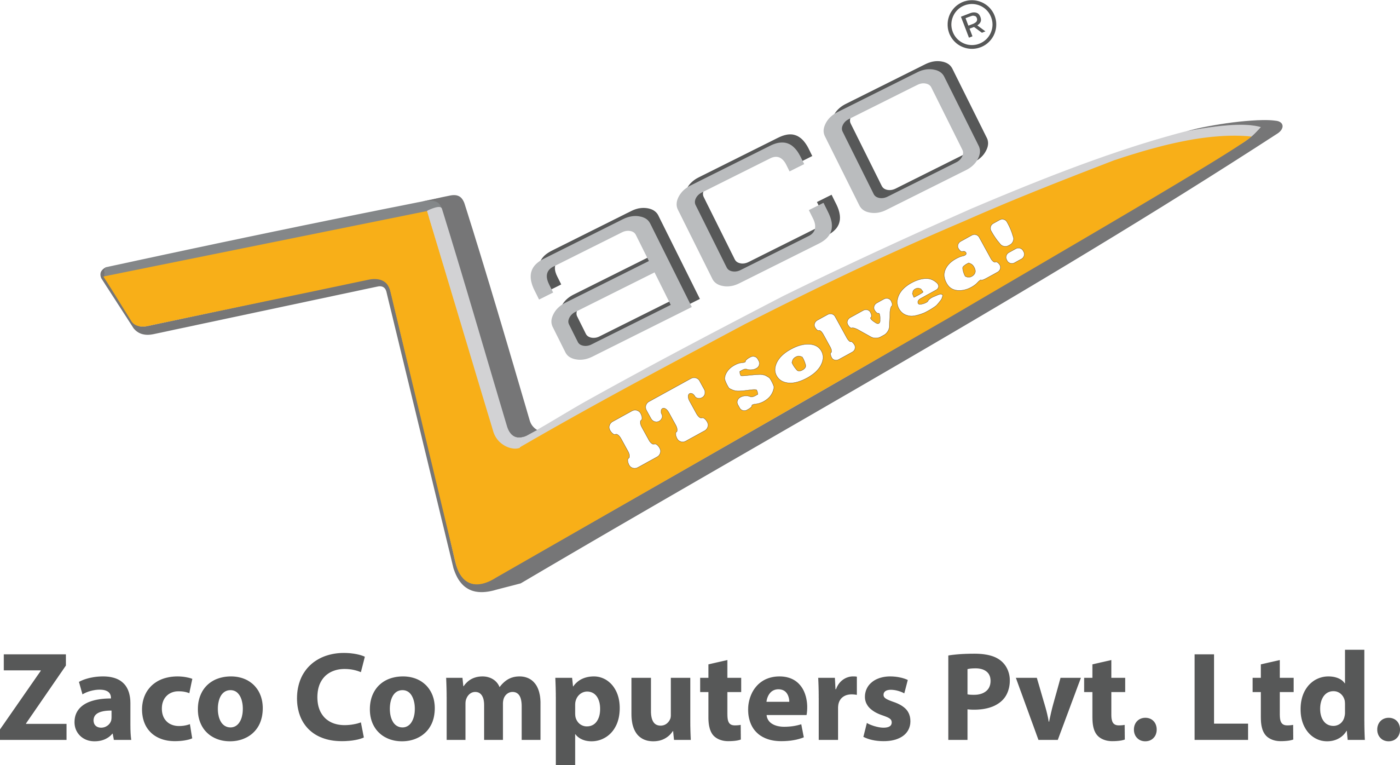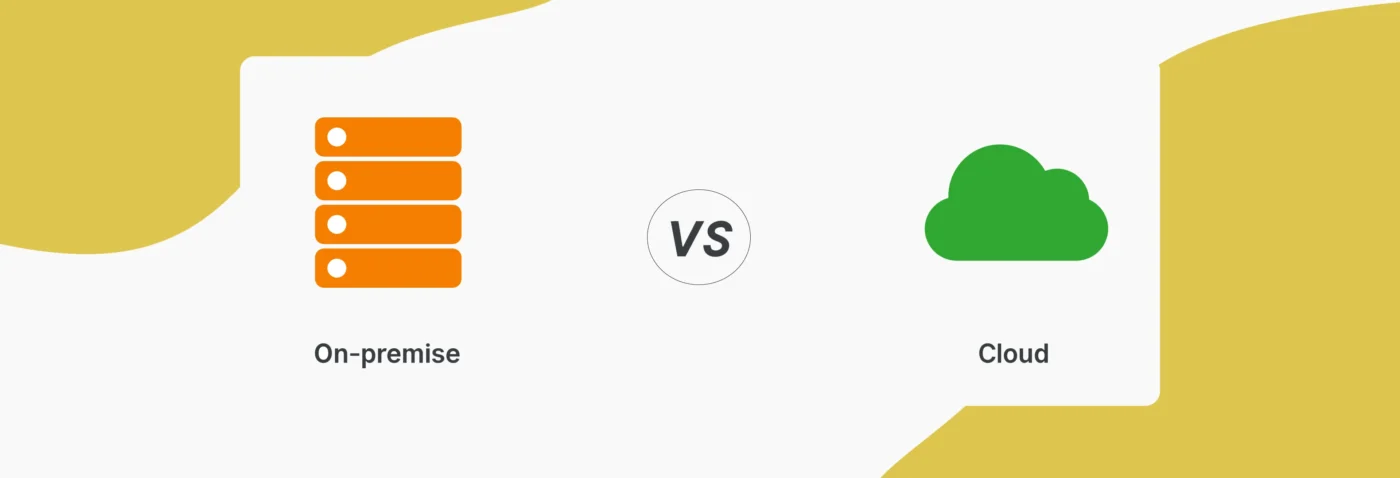In today’s fast developing IT enterprise world, there are a lot of major changes and upgradations happening continuously. One such major upgradation in infrastructure is the cloud infrastructure. Cloud computing is attracting a lot of company’s attentions for hosting their data as it offers newfound flexibility for businesses. But even with all its allure and promises that it offers it still has many disadvantages over the age old tried and trusted on-premise applications and software to do business and for hosting all the data. One crucial topic of discussion that often pops up here is regarding hosting your critical data on-premise vs cloud data hosting, which one to opt for and more importantly why!
Many new startup businesses as well as quite established companies are stuck in the dilemma of choosing between on-premise technological infrastructure or cloud computing infrastructure. Established companies that are already using on-premise technology thinks whether to transition out of it and make a move to cloud infrastructure. But before choosing either of the two, you need to know the difference between the both and then choose according to your company’s needs.
For a very long time organizations had just one offering that adequately met all their business needs. And that was on-premise software installed on a company’s own servers, safe and secure behind its firewall. Moreover, on-premise applications were reliable and allowed enterprises to control their own data. So, the organizations never thought of switching to any other alternative.
But then came cloud computing infrastructure. Although there are many attractive offers in cloud computing technology from saving time and money to improving scalability and agility which attracted new startup businesses as well as established companies. But when compared to hosting data on-premise there are many disadvantages in cloud technology.
Let’s discuss few important pointers of difference between hosting data on-premises vs hosting data on cloud below:
Server Selection On-Premise vs Cloud
For any organization servers are the LIFELINE of the business. The company’s information and crucial data is stored in them, they connect the employees, and help the business in connecting with others around the globe. So, choosing between on-premises or cloud computing mainly boils down to choosing between keeping our lifeline in our own hand over handing it over to a third party. Because there is one crucial difference between cloud computing and the on-premise software. In an on-premise environment all the data is stored in house while a third-party provider hosts all the data for you in a cloud. Zaco can help you select the correct server according to your requirements.
On-Premise vs Cloud Control of Sensitive Data
In cloud computing environment the control of data is big question mark for companies. Because data and encryption keys are in the hands of the third-party provider. If there happens to be downtime due to some unexpected reason you would not be able to access your data!
Whereas in an on-premise environment, companies are in full control of their data because it resides with them. They completely own their data.
Companies that prefer having dedicated servers within their premises to handle their needs, can upgrade their servers themselves. They won’t have to ask a cloud storage company to upgrade their storage plan. Being able to modify the server’s hardware can give the company flexibility and customization for their storage needs. Also, the server maintenance can be carried out by the firm as per their flexible time.
Server and Data Security On-Premise vs Cloud
When you host your data on cloud platform, you are trusting an outside party for managing and keeping your data secure. In this case there is always the risk of unauthorized personnel hacking it. It is vulnerable to prying eyes.
Just like with cloud storage, cloud software also has security issues. They can be hacked by outsider looking for data from the online programs.
In on-premise the data is stored inside the company’s own server, therefore it cannot be accessed by anyone other than the authorized personnel. Moreover, they do not store the data online so access is restricted to anyone outside the network.
On-Premise vs Cloud Overall Expenditure
When you are using a cloud platform, you have to pay for the virtual resources that you use but still cloud services have consumption models where you have to pay according the resources that you utilize. Which means that as your storage consumption increases so does your monthly cost. To avoid such a surprise of high monthly cost your company will have to adopt policies and store minimal data. This can be an issue once the company size grows in the near future.
Another drawback to cloud based software is that long term subscription will make the cost go up more than expected if your company would have paid licensing fees from the beginning. This is true if you don’t rely on latest version of software.
For companies with on-premise storage, there is no need for a strong internet connection or dasher download speed as it can work on internal with normal internet speed. This reduces the monthly internet cost. Also, you can opt for refurbished servers in this case which will drastically save up to 60 to 70% of your IT infrastructure costs. They will give you the same performance as the new server does and you will have your valuable data with you all the time.
On-Premise vs Cloud Dependency on Internet
Before switching to cloud the companies should be double sure about the internet connection. Because if there is connection outage, access to your files become impossible! Operations get delayed, productivity gets affected due to this which in turn hampers your company. Even a slow internet connection will make accessing or downloading files a tedious job.
In an on-premise environment, you don’t need internet to access your data. This is a major advantage point for hosting data on-premise. Although today almost all businesses rely on internet yet if there is a small glitch in the connection, you’ll be able to access data within your network and work won’t be affected.
Flexibility and Customization On-Premise vs Cloud
With cloud-based platforms there is always an issue of flexibility and customization for companies. The same off the shelf application is provided to every user. So, there isn’t a wide customizable option available for the user.
Whereas in an on-premise platform since you are handling all the software yourself you will be able to customize much more and as per your requirement keeping in mind the entire company internal networks.
To conclude, as we checked hosting data on-premise has many advantages over the cloud. Moreover, there have been many publicly known cloud breaches, which has made the IT world around the globe concerned regarding safety and security of their critical data. Specifically sectors like banking, government, defense which have extra sensitive information are more likely to be targeted by hackers if their data is hosted in cloud rather than on-premise. Hence one must prefer storing data on a physical server over cloud keeping in mind the above-mentioned pointers. Do drop in your thoughts on the same, we would love to hear from you about which option would you go for and more importantly why.

